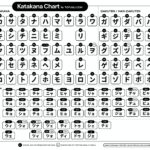Sasuke’s journey in Naruto is largely defined by his quest for vengeance against his older brother, Itachi. But Does Sasuke Learn The Truth About Itachi’s actions? The answer is a resounding yes, but the revelation and Sasuke’s subsequent reaction are far more complex than a simple acceptance of facts. This article delves into the truth behind the Uchiha massacre, Sasuke’s discovery of it, and the profound impact it has on his character arc.
Unraveling the Uchiha Massacre: A Tale of Political Intrigue
The Uchiha clan, renowned for their powerful Sharingan eyes, was suspected of plotting a coup against the Hidden Leaf Village. This suspicion stemmed from historical events and the clan’s growing resentment towards the village leadership. However, the truth was far more nuanced. The Uchiha were victims of systemic discrimination and political maneuvering, pushed to the brink of rebellion by the village elders’ fear and prejudice. Itachi, a prodigy within the Uchiha clan and a loyal shinobi of the Hidden Leaf, was tasked with an impossible choice: allow a civil war to erupt, potentially destroying the village, or eliminate his clan to preserve peace. He chose the latter, carrying the burden of this horrific act to protect the village and his younger brother, Sasuke.
Sasuke’s Discovery: A Crushing Blow and a Twisted Justification
Sasuke’s world revolved around avenging his clan and killing Itachi. His training, his choices, and his very identity were fueled by this burning desire. When Obito Uchiha (masked as Madara) reveals the truth about Itachi’s sacrifice, it shatters Sasuke’s foundation. However, the narrative falters in its portrayal of Sasuke’s reaction. Instead of grappling with the complex moral implications of Itachi’s actions and the village’s culpability, Sasuke quickly absolves Itachi, viewing him as a noble martyr. This swift and unrealistic shift undermines the emotional weight of the revelation and diminishes the years of hatred and trauma Sasuke endured.
A Missed Opportunity: Exploring Sasuke’s Moral Dilemma
The truth about the Uchiha massacre presented a golden opportunity to explore deeper themes of justice, morality, and the cyclical nature of hatred. A more compelling narrative would have seen Sasuke wrestle with the conflicting emotions of grief, betrayal, and a newfound understanding of Itachi’s sacrifice. Instead of immediate forgiveness, Sasuke should have been consumed by an even greater rage, not just towards the individuals responsible but towards the corrupt system that enabled such atrocities. This anger could have fueled a more nuanced and morally ambiguous character arc, questioning the very foundations of the shinobi world. Instead, the narrative simplifies Sasuke’s response, robbing the story of a potentially powerful exploration of trauma and moral complexity.
The Ripple Effect: How the Truth Should Have Impacted Sasuke
Imagine a Sasuke who, upon learning the truth, channels his rage into a revolution against the corrupt leadership of the Hidden Leaf. He could have used his newfound understanding to challenge the status quo and build a more just future. This would have created a compelling conflict with Naruto, forcing him to confront the dark underbelly of the village he so fiercely protects.
Conclusion: A Lost Potential for Depth and Complexity.
The revelation of Itachi’s truth should have been a pivotal moment in Sasuke’s development, leading to a deeper exploration of his character and the moral complexities of the Naruto world. However, the narrative’s failure to fully capitalize on this opportunity ultimately diminishes the impact of the Uchiha massacre and leaves a lingering sense of unfulfilled potential. Instead of a complex and morally gray character grappling with trauma and seeking justice, Sasuke’s journey takes a less compelling turn, leaving audiences to ponder what could have been.

